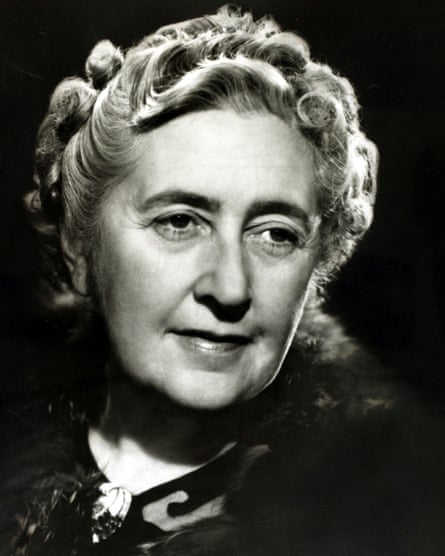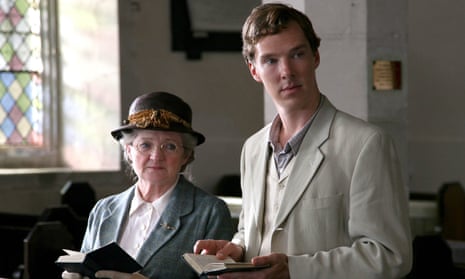Forget domestic noir and put down all those books with “Girl” in the title. Crime fiction is turning back the clock to its golden age with a host of books that pay homage to the genre’s grande dame, Agatha Christie, either intentionally or in spirit.
Last week saw the publication of Closed Casket, Sophie Hannah’s second Hercule Poirot book, which “continues” the great sleuth’s life of solving crimes. The book has been published to coincide with what would have been the author’s birthday and to commemorate 100 years since she wrote her first published novel.
In October Hodder & Stoughton will bring out chatshow host Graham Norton’s first novel, Holding, described as a story of “love, secrets and loss” centring around a crime in a small village in Ireland. In May, Bloomsbury publishes Plum Sykes’s Party Girls Die In Pearls, the first of a new crime series billed as “Agatha Christie meets Clueless”, and Orion has just announced a deal with bonkbuster queen Tilly Bagshawe to write a new “cosy” crime series as MB Shaw. Meanwhile, reprints of 30s and 40s crime classics are continuing to sell well and HarperCollins has just commissioned writer and theatre-maker Stella Duffy to complete an unfinished novel by New Zealand crime writer Ngaio Marsh, set during the second world war.

So why does crime’s golden era continue to exert such a pull? Hannah says it’s largely down to our desire to be entertained.
“I think the resurgence in the popularity of golden age crime fiction is partly down to the fact that we do, at some level, like to have that satisfaction of having a story told to us in a very overtly story-like way,” she says. “Inherent in golden age crime writing is the message: ‘This is a great story and you will have fun reading it’.”
It also helps that Christie was a genius, she says. “She really, really put the story above everything else … you’re so gripped by the mystery that you never guess what’s coming and are always pleasantly shocked by the ending.”
Bagshawe, whose new series about amateur sleuth and portrait painter Iris Grey was inspired by Christie, agrees. “I came up with the idea for this series because a whole bunch of publishers were asking me to write a sexy psychological thriller and I practically passed out with boredom,” she says. “Soon after that I re-read Agatha Christie’s Miss Marple short stories and was really struck by how beautifully drawn the character is. It’s a wonderful character study of a woman who is constantly underestimated because of her age and her gender.”
She was keen to differentiate her heroine from all the troubled “Girls” dominating crime fiction. “I really wanted to write a series about a woman who was in her 40s, who didn’t have an addiction or an unhappy marriage or a messy life, who wasn’t unreliable. She’s just a woman in her 40s who’s good at noticing things. That’s her tic.”
David Brawn, estates publisher at HarperCollins, says that the resurgence of interest in the golden age is largely driven by practical concerns. “One of the main reasons behind the sudden popularity of crime from this period is that modern publishing and new technology allows for shorter runs in printing, which means that we can now mine backlists that would previously have been unprofitable,” he says. “We’ve had a lot of success with the Detective Story Club imprint, which tries to bring some of the best less well-known writers of the Christie era to public attention.”

There’s also a growing appetite at publishing houses for books by modern authors who can put their own spin on the golden age genre.
Alexandra Pringle, editor-in-chief at Bloomsbury, says that it bought Sykes’s series – which follows two undergraduates, one British and one a more worldly American, as they solve crimes in 1980s Oxford – because “it felt as if Dorothy Parker or Nancy Mitford were to try their hand at an Agatha Christie … subversive, wickedly funny and modern”.
Sykes herself says she’s a huge Christie fan who wanted “to take what I know I can do, which is high-society comedy and romance, and then add mystery to the mix”.
That said, Brawn warns that Christie’s deceptively simple style is not easy to get right. “There are definite challenges for modern authors. These days, crime writers rely a lot on police procedurals and technology, and to write a good golden age novel you really have to unlearn those things and embrace the disciplines of the golden age, which really centre around plot and character.”
The real appeal with Christie is that not only are they really good stories but there’s a lot going on under the surface, he says. “They’re sometimes unfairly dismissed as being a bit safe compared with today’s crime thrillers, but in reality there’s a lot of darkness there.”
James Prichard, Christie’s great grandson and the chairman of Agatha Christie Ltd, agrees. “There’s a terrible tendency to see golden age crime as cosy crime, but I think it’s pretty evident that my great-grandmother found murder a serious and horrific business,” he says. “The reason that these books have lasted and that so many people still read or try to emulate them today is because the plots stand up. People enjoy the puzzle elements in them and they like the fact that you might feel a little uncomfortable, but never so uncomfortable that you can’t go on.”

Comments (…)
Sign in or create your Guardian account to join the discussion